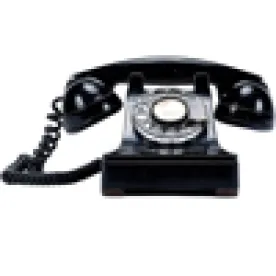Last month, in Rinky Dink, Inc. v. Electronic Merchant Systems, et al., No 13-cv-01347, 2015 WL 778065 (W.D. Wash. Feb. 24, 2015), online voice and text provider CallFire became one of the first (if not the first) TCPA defendants to avoid liability for pre-recorded calls through the common carrier defense.
The TCPA explicitly provides a “common carrier” exception for fax broadcasters, who are exempt from liability absent a high degree of involvement in or actual knowledge of TCPA violations. 47 C.F.R. § 64.1200(a)(4)(vii). In the telephone context, parties have generally argued that the TCPA, at least implicitly, exempts as “common carriers” entities that act as passive conduits for the calls made or text messages sent. For example, a phone manufacturer or service provider may provide the equipment or signal used to make calls or send text messages, but otherwise plays no role in the call or text. The possibility of a common carrier exception for phone calls and text messages has long been discussed in TCPA defense circles, and has appeared in dicta in a handful of district court orders (generally on motions to dismiss). However, Judge John C. Coughenour in the Western District of Washington appears to be the first, with his Rinky Dink decision, to grant summary judgment on the basis of the common carrier defense in an phone call case. And, what is more interesting, he did so for CallFire, an online voice and text provider, as opposed to the more typical telecommunications providers (i.e., Verizon and AT&T).
Rinky Dink concerned an alleged pre-recorded call campaign conducted by the other named defendant, Electronic Merchant Systems (“EMS”), and run through CallFire’s online platform. CallFire was not involved in the creation or content of the messages.
Judge Coughenour drew a hard line from the start of his order, holding that “the TCPA does not apply to common carriers,” but rather was intended to apply only to the one initiating the call or sending the text message. Judge Coughenour then set forth an analysis relatively novel to the TCPA. First, he applied a common carrier standard derived from case law evaluating the Communications Act of 1934. And second, he applied the fax broadcaster language found in the FCC’s TCPA regulations.
As to the first, Judge Coughenour, citing a D.C. Circuit Court of Appeals case for the definition of a “common carrier,” applied the following two-pronged test derived from authority interpreting the Communications Act of 1934:
(1) Does the entity hold itself out indifferently to all potential users or, if serving a legally-defined class, hold itself out indiscriminately to serve all within that class; and (2) does the entity allow customers to transmit messages of their own design and choosing?
(citing U.S. Telecom Ass’n v. F.C.C., 295 F.3d 1326, 1329 (D.C. Cir. 2002).) Judge Coughenour then turned to the fax broadcaster exception and evaluated whether CallFire “(1) exercised a high degree of involvement with the unlawful activity, or (2) had actual notice of an illegal use of its services.” (citing In the Matter of Rules & Regulations Implementing the Tel. Consumer Prot. Act of 1991, 7 F.C.C. Rcd. 8752, 8779-80 (1992).)
On a motion for summary judgment, Judge Coughenour answered each of those questions in the negative. Specifically, he found that (1) CallFire holds itself out indifferently to all its customers, (2) EMS was the sole author of the messages and selected the numbers to be called, timing and location of the calls, and (3) CallFire was neither highly involved nor had any knowledge of EMS’s allegedly illegal calling activities. Importantly, the Court held that even though CallFire advertised its own robo-dialing capabilities, and had previously been sued for TCPA violations, such evidence was insufficient to demonstrate that it had actual knowledge of EMS’s alleged improprieties.
Also worth noting, in a separate part of the opinion analyzing liability under Washington’s state TCPA analog (the Washington Automatic Dialing and Announcing Device statute), the Court held that CallFire did not initiate the calls at issue. Specifically, the Court found that CallFire’s “automatic” system only “transmits data after the process is initiated by its customers.” Presumably, had the TCPA claim not already been adjudicated on the basis of common carrier liability, it similarly would have been adjudicated in favor of CallFire on the basis that CallFire did not initiate calls.
Exempting “middlemen” or “passive conduits” like CallFire from TCPA liability has important implications. As an initial matter, it should be music to the ears of communications platforms and telecommunications providers, which are beginning to find themselves roped into TCPA cases. Additionally, should Judge Coughenour’s common carrier analysis catch on, it could drastically change the landscape of TCPA cases against mobile applications, group-messaging services and other modern-day communication providers that merely provide users the opportunity to communicate with others (even on a mass-basis), but play no role in drafting the message or making the call or in choosing the recipients. In other words, following Judge Coughenour’s analysis, a group iMessage would not implicate Apple, for example.



 />i
/>i
